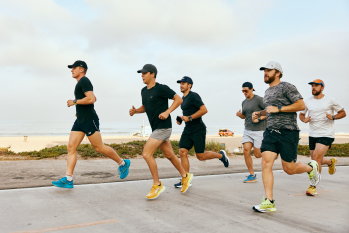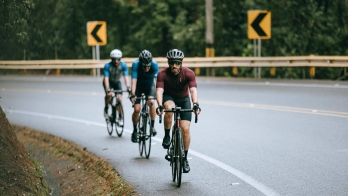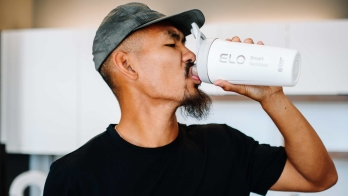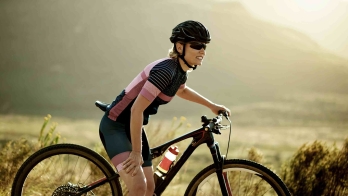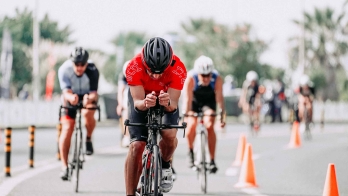The best nutrition recovery products for cyclists, according to experts
Whether you're an elite cyclist or a newbee, post-workout nutrition is almost just as important as your training plan. Recover faster after a hard bike ride with these expert-approved nutrition products.
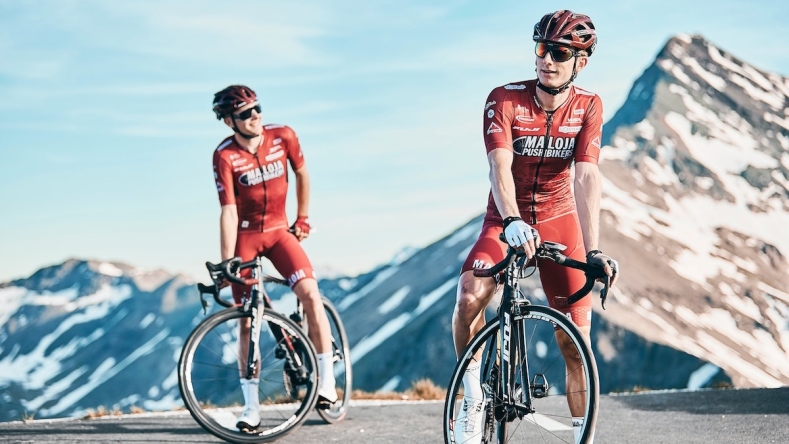
A killer ride can mentally and physically push you to the limit — sometimes beyond. But training hard is only part of the performance puzzle. Giving your muscles time to recover, repair, and adapt is when you truly reap the benefits of all your hard work. Skimping on recovery will not only put a dent in performance gains it will also put you at greater risk of burnout and injury.
Sure your body can and will (eventually) recover on its own, but going the extra mile to help your muscles refuel and repair can enhance recovery and even shorten your recovery time.
To help, we’ve rounded up the best science-backed nutrition recovery products for cyclists according to experts, including several sports dietitians and a World Masters Champion.
Recovery shakes
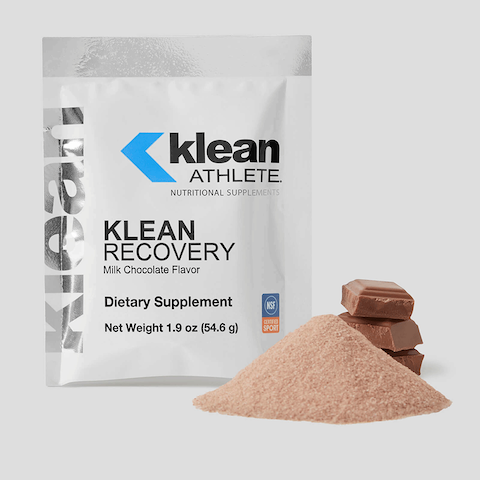
Klean Recovery
For an all-in-one protein and carbohydrate replenishment after a tough ride, board-certified sports dietitian Leslie Bonci, MPH, RD, CSSD Klean Recovery™ 4:1 carbohydrate-to-protein ratio
All Klean Athlete products are science-based (meaning there’s research behind each product’s design) and NSF-certified
Arbonne FeelFit Pea Protein Shake
Arbonne’s FeelFit Pea Protein Shake
Elo Community Manager and World Masters Champion cyclist, Anne Valta, like Arbonne’s protein shakes when she can’t get her hands on real food after a long ride. “If I go for a long ride or do a harder workout in the gym and I don't have access to real food right after, I'll prepare a protein drink with coconut water and a plant-based protein powder, like Arbonne,” says Valta. “I like the taste and quality. I can't use whey protein because I'm lactose intolerant [and whey protein contains varying amounts of lactose]”
Arbonne’s FeelFit Pea Protein shakes come in two tasty flavors — chocolate vanilla single-serve packets
Protein powders
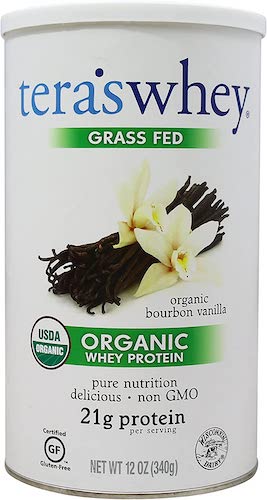
Tera's Whey Organic Bourbon Vanilla Whey Protein
Post-workout protein provides muscles with essential amino acids, like leucine, that support muscle repair and recovery. To add a boost to post-workout smoothies, dietitian Edwina Clark, MS, RD, APD, recommends Tera's Whey Organic Bourbon Vanilla Whey Protein
Another thing Clark likes about this product is its impressively short and simple ingredient list. “I like that Tera's whey doesn't contain any funky ingredients,” mentioned Clark. One peek at the ingredient list and well, we agree. The vanilla whey protein contains just four ingredients: organic dairy whey protein concentrate, organic vanilla, organic sunflower lecithin, and organic stevia leaf extract. What’s not to like about that?
One thing to keep in mind: Protein powder is different than a recovery shake, and should be consumed along with a source of carbohydrates after a tough ride. “While protein will kickstart muscle repair and recovery, you'll also want to restock your glycogen stores with carbs,” recommends Chrissy Carroll, RD, and USAT Level I Triathlon Coach at Snacking in Sneakers
NOW® Sports Creamy Vanilla Plant Protein Complex
If you prefer plant-based protein, Carroll recommends a plant protein blend like NOW® Sports Creamy Vanilla Plant Protein Complex
The International Society of Sports Nutrition recommends that acute protein doses contain at least 700 to 3000 mg of leucine, a key amino acid involved in recovery [1] here
Like whey protein powders, plant-based protein powders should be consumed along with a source of carbohydrates to replenish depleted glycogen stores and maximize muscle recovery.
Energy bars
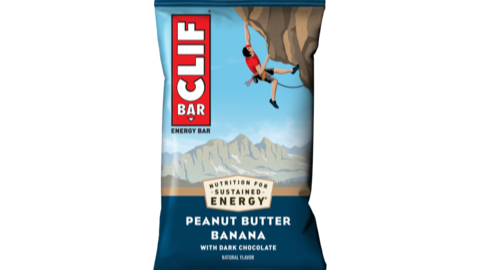
Clif Bars
Clif Bars
With about 250 calories per bar, these bars are substantial enough to fuel you for a longer ride or tide you over till your next meal if you’re on the go. Bonci is a fan of Clif Bars for post-ride recovery because of their nutrient composition. With about 40 grams of carbs and 10 grams of protein per bar, “they provide a great ratio of carb-to-protein post-exercise,” she says.
PROBAR
Another brand of bars Bonci likes is PROBAR
Electrolytes and hydration
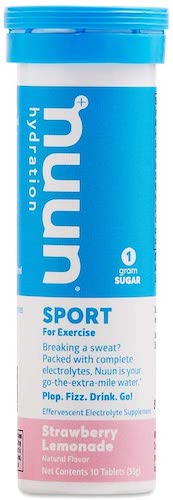
Nuun Hydration
Rehydration after exercise is an important part of recovery, especially after long rides, or cycling in hot and humid weather which leads to greater fluid losses [2]
There’s more to rehydrating than chugging water though. To fully rehydrate, you need to replace both the fluid and electrolytes lost in sweat [2] Electrolytes are lost through sweat
To level up your post-ride rehydration, Clark likes Nuun Hydration Sport
Natural anti-inflammatories
Feeling sore for days after a tough ride? Many sports dietitians will tell you to consider adding natural anti-inflammatories to your diet.
Inflammation is part of the body’s natural recovery response after a long ride or tough workout and one of the reasons why you feel sore and stiff after pushing yourself on the bike. It plays an important role in muscle tissue repair, but for athletes who train hard every day, the inflammation may not completely resolve, resulting in achiness, fatigue, and poor performance. An anti-inflammatory diet rich in fruits, vegetables, and certain compounds can boost recovery and help minimize the potential for chronic exercise-induced inflammation.
In addition to eating a variety of fruits and veggies every day, here are a few anti-inflammatory supplements our sports dietitians recommend:
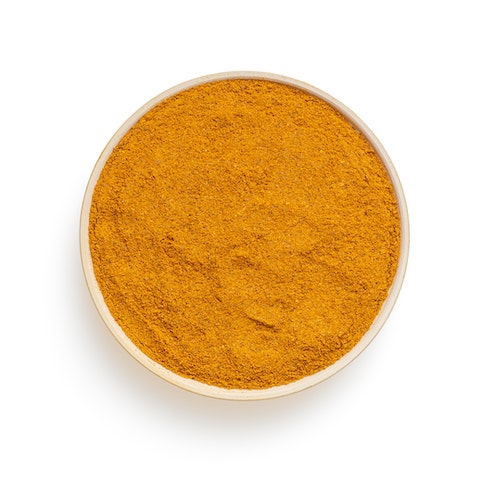
Turmeric (Curcumin)
A growing body of evidence suggests turmeric, which contains curcumin (the substance that gives turmeric its bright yellow hue) may aid recovery.
Small studies indicate that 150-1500mg turmeric/day may improve post-exercise recovery and reduce muscle soreness, however, the evidence to date is mixed [3] [4] [3]
Wondering just how much turmeric you’ll need to consume? One teaspoon is about 200 mg, which might be enough to provide benefits. If downing a teaspoon or two of cumin each day feels like a lot, turmeric supplements are also available in a convenient capsule form. Some are even formulated with black pepper for enhanced absorption and effectiveness.
Cheribundi Tart Cherry Juice
Tart cherry juice is loaded with antioxidants and polyphenolic compounds, making it increasingly popular among endurance athletes. Some evidence suggests that consuming tart cherry juice prior to endurance activities like cycling may improve performance and reduce muscle soreness, although research is mixed [5]
Dietitian and sports trainer Jenna Braddock, RD, CPT
Tart cherry juice can be found in various forms including juice, capsule, and concentrate. Braddock likes the Cheribundi Tart Cherry Juice
Omega-3s
You know they’re good for brain and heart health, but evidence shows omega-3s fight inflammation and may help promote muscle recovery after a tough ride [6]
Most health benefits of omega-3s come from EPA and DPA (eicosapentaenoic acid and docosahexaenoic acid) food sources, which are most abundantly found in fatty fish. If you’re not consuming fatty fish at least 2 times a week or have several training sessions stacked with minimal recovery time between, a supplemental dose of omega-3s can be helpful for recovery and overall health [7]
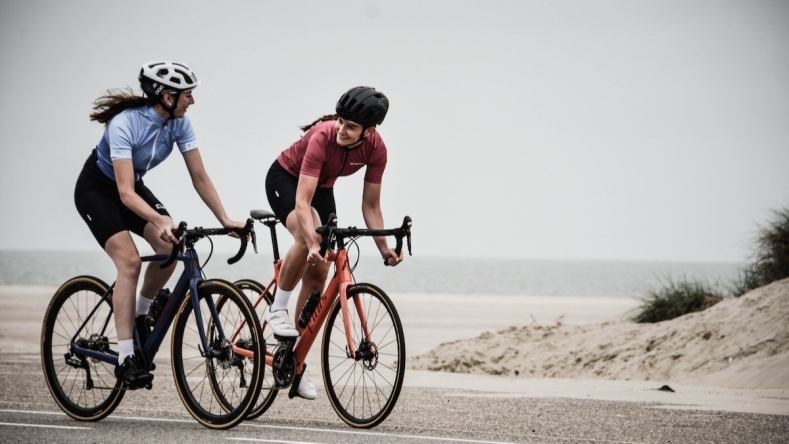
Summary
When it comes to training, recovery is as important as the work you put in on the bike. But not all recovery nutrition aids are created equal and it’s important to do your homework before you invest in pricey, ineffective products. Moreover, nutrition is not a standalone strategy for recovering from a tough ride and should be paired with ample rest and muscle maintenance strategies like foam rolling and stretching, for fast and effective recovery.
Disclaimer: The text, images, videos, and other media on this page are provided for informational purposes only and are not intended to treat, diagnose or replace personalized medical care.
Key Takeaways
Recovery is as important as the work you put in on the bike.
Pair your protein powder of choice with a source of carbohydrates to replenish depleted glycogen stores and maximize muscle recovery.
Rehydration after exercise is an important part of recovery (especially after long rides, or cycling in hot and humid weather) which leads to greater fluid losses
[2]
.Add natural anti-inflammatories to your diet (like turmeric, Cheribundi Tart Cherry Juice, and omega-3s) to aid in muscle tissue repair.
References
Jäger, R., Kerksick, C. M., Campbell, B. I., Cribb, P. J., Wells, S. D., Skwiat, T. M., Purpura, M., Ziegenfuss, T. N., Ferrando, A. A., Arent, S. M., Smith-Ryan, A. E., Stout, J. R., Arciero, P. J., Ormsbee, M. J., Taylor, L. W., Wilborn, C. D., Kalman, D. S., Kreider, R. B., Willoughby, D. S., Hoffman, J. R., … Antonio, J. (2017). International Society of Sports Nutrition Position Stand: protein and exercise. Journal of the International Society of Sports Nutrition, 14, 20.
https://doi.org/10.1186/s12970-017-0177-8
Maughan, R. J., & Shirreffs, S. M. (1997). Recovery from prolonged exercise: restoration of water and electrolyte balance. Journal of sports sciences, 15(3), 297–303.
https://doi.org/10.1080/026404197367308
Paultre, K., Cade, W., Hernandez, D., Reynolds, J., Greif, D., & Best, T. M. (2021). Therapeutic effects of turmeric or curcumin extract on pain and function for individuals with knee osteoarthritis: a systematic review. BMJ open sport & exercise medicine, 7(1), e000935.
https://doi.org/10.1136/bmjsem-2020-000935
Yoon, W. Y., Lee, K., & Kim, J. (2020). Curcumin supplementation and delayed onset muscle soreness (DOMS): effects, mechanisms, and practical considerations. Physical activity and nutrition, 24(3), 39–43.
https://doi.org/10.20463/pan.2020.0020
Gao, R., & Chilibeck, P. D. (2020). Effect of Tart Cherry Concentrate on Endurance Exercise Performance: A Meta-analysis. Journal of the American College of Nutrition, 39(7), 657–664.
https://doi.org/10.1080/07315724.2020.1713246
VanDusseldorp, T. A., Escobar, K. A., Johnson, K. E., Stratton, M. T., Moriarty, T., Kerksick, C. M., Mangine, G. T., Holmes, A. J., Lee, M., Endito, M. R., & Mermier, C. M. (2020). Impact of Varying Dosages of Fish Oil on Recovery and Soreness Following Eccentric Exercise. Nutrients, 12(8), 2246.
https://doi.org/10.3390/nu12082246
Publishing, H. (n.d.). Omega-3-rich foods: Good for your heart. Retrieved February 03, 2021, from
https://www.health.harvard.edu/heart-health/omega-3-rich-foods-good-for-your-heart

